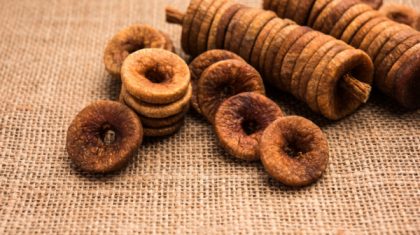Fig (often known as Anjeer) is a member of the mulberry family. Anjeer is a wonderful fruit to enjoy because, unlike other dry fruits, it has crunchy seeds within and a soft, juicy outer shell. While it is enjoyed by everyone alike, Anjeer for people with diabetes commonly raises an eyebrow among many people.

Consult with Diabetes Experts Now
Figs are typically eaten dry since the flavor is better when the dried seeds become more crunchy. Anjeer aids in curing a variety of illnesses and is packed with important vitamins, minerals, and antioxidants, just like other nuts and dry fruits. Is Anjeer (Fig) useful for diabetes, considering its many advantages?

Anjeer For People With Diabetes – Is It Beneficial?
Anjeer indeed helps people with diabetes. Anjeer can assist people in controlling their diabetes because of its anti-inflammatory and antioxidant characteristics. It also decreases blood sugar levels and improves insulin secretion.
Although diabetics can eat anjeer, it is recommended that they limit how much they consume. Figs, also known as anjeer, are high in fibre and support healthy insulin activity in diabetics.
Benefits of Anjeer for People With Diabetes
Minerals like copper, magnesium, phosphorus, and potassium are abundant in Anjeer. It works wonders for better digestion, absorption, reducing hunger, and managing blood sugar levels.
Potassium plays a critical role in controlling how much sugar the body absorbs after meals. Chlorogenic acid, another essential blood sugar regulator found in anjeer, lowers blood sugar levels and aids in the management of diabetes. Consequently, eating anjeer is safe for those who have diabetes!
With a moderate glycemic index (GI) of 61, anjeer distributes glucose into the blood more gradually than foods with high GIs. This is furthered by the high fibre content of anjeer, which guarantees that food is digested gradually and keeps you fuller for longer.
Anjeer, on the other hand, has anti-inflammatory and antioxidant characteristics that guard against inflammation and protect the pancreas from harm. This guarantees that proper insulin secretion takes place and that blood sugar is broken down to produce energy.
Other Health Benefits Of Anjeer
- Helps with managing weight
People will appreciate this high-fiber dry fruit because they need to eat something throughout the day, and dried Anjeer is a tasty and wholesome option. To manage weight in a healthy way without sacrificing nourishment, just a few figs will do.. - Strengthens Your Bones
Figs contain a lot of calcium, which can boost your immunity even in tiny amounts. - Figs Are Good For Your Heart
Your heart’s health is eventually affected by any kind of bodily imbalance. Anjeer naturally lowers triglyceride levels in the body. Dried figs’ high levels of antioxidants work in conjunction with ingredients that lower blood pressure to protect against heart disease.
What quantity of Anjeer can a diabetic consume?
The maximum daily intake for those with diabetes or excessive blood sugar should be 4-5 anjeer (best limited to 2-3 in a day). Since anjeer have blood coagulation qualities, those taking blood thinners should speak to a doctor before incorporating them into their diet.

Best Time For A Diabetic To Consume Anjeer
Anjeer is most beneficial for your health when ingested first thing in the morning, just after waking up. It can be consumed throughout the day with other proteins, and if consumed at night, it is recommended to do so with warm milk before bed.
2-3 jeers should be soaked in water overnight and eaten the next morning. Anjeer may also be included in salads.
If you want to know more about whether or not you can include certain food items in your diet, you should always speak to your doctor or health coach. They will give you the best guidance on how you can incorporate diabetes-friendly ingredients in your diet.




